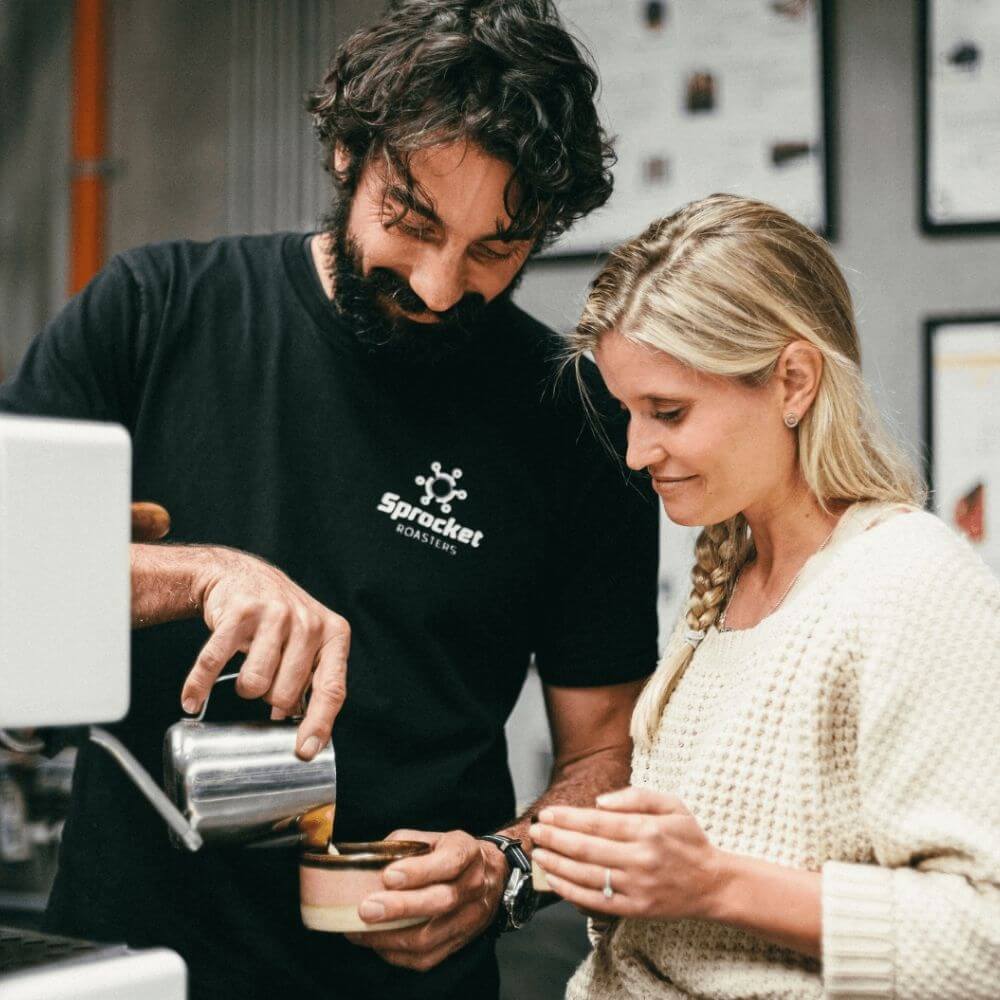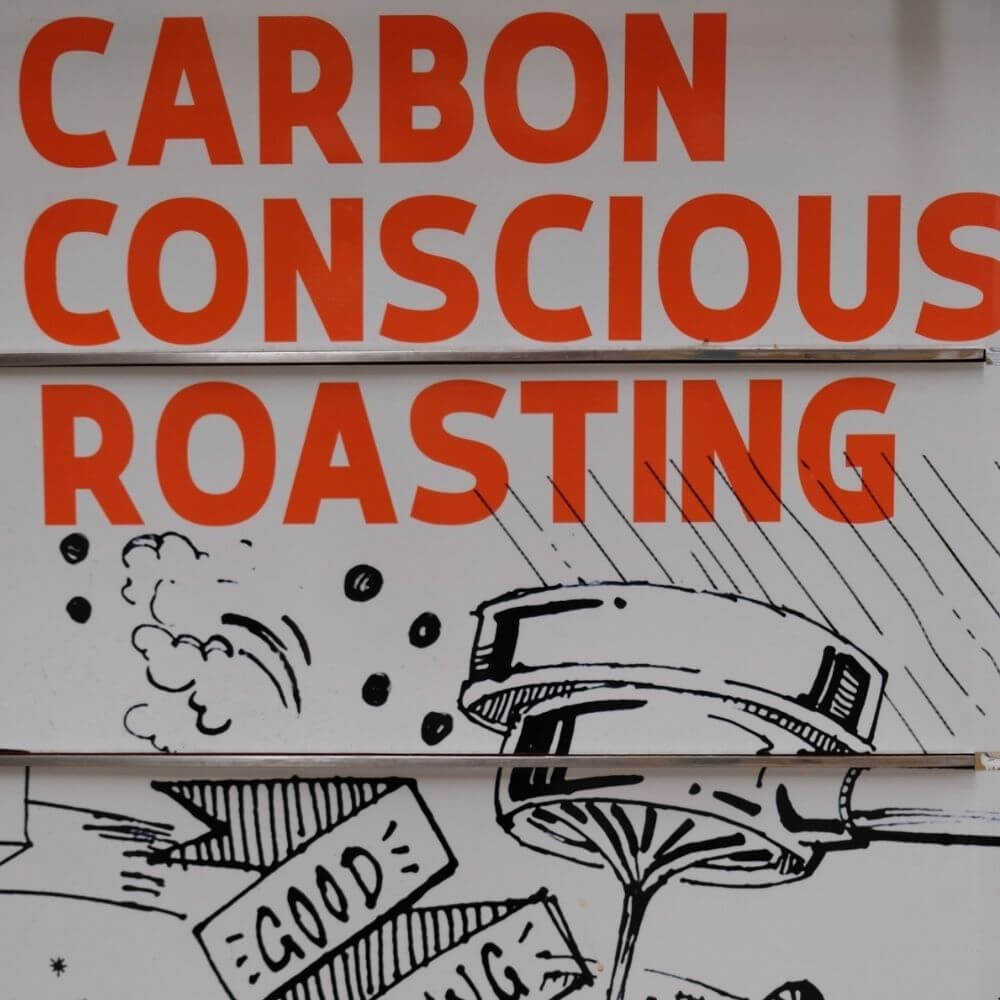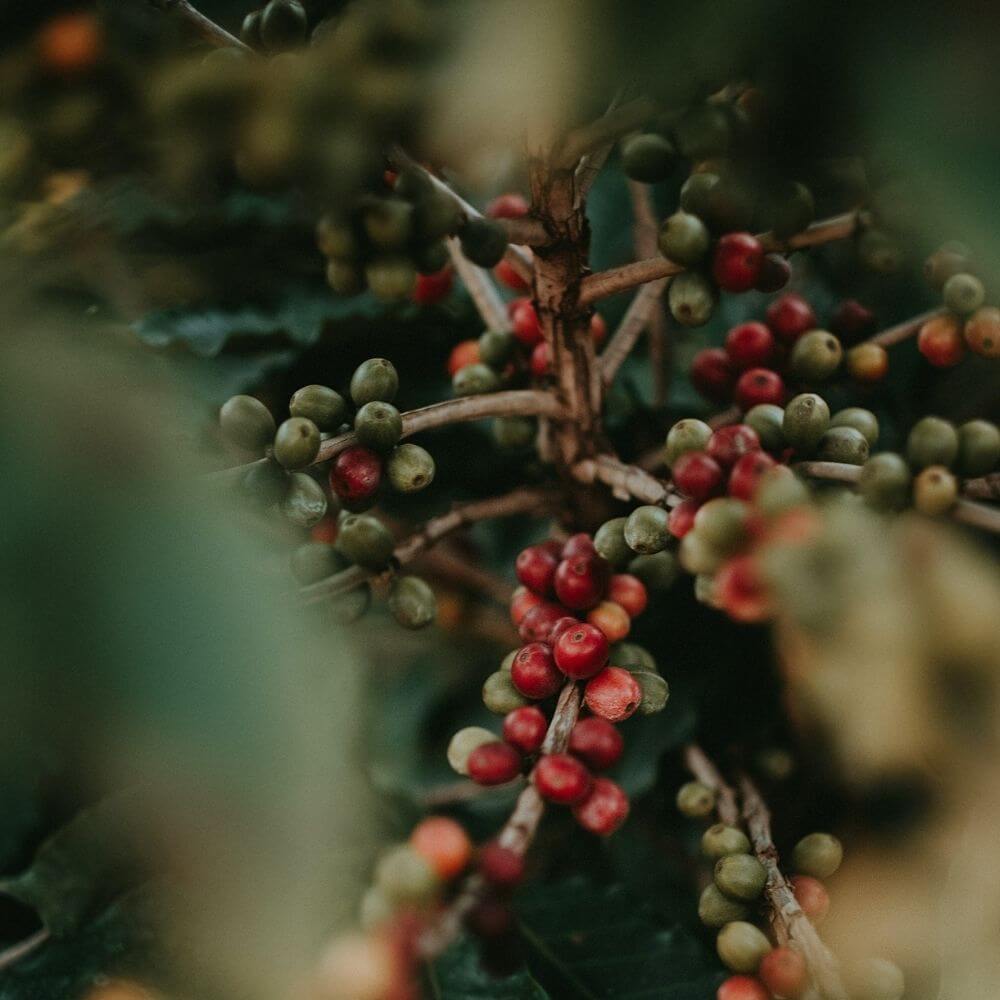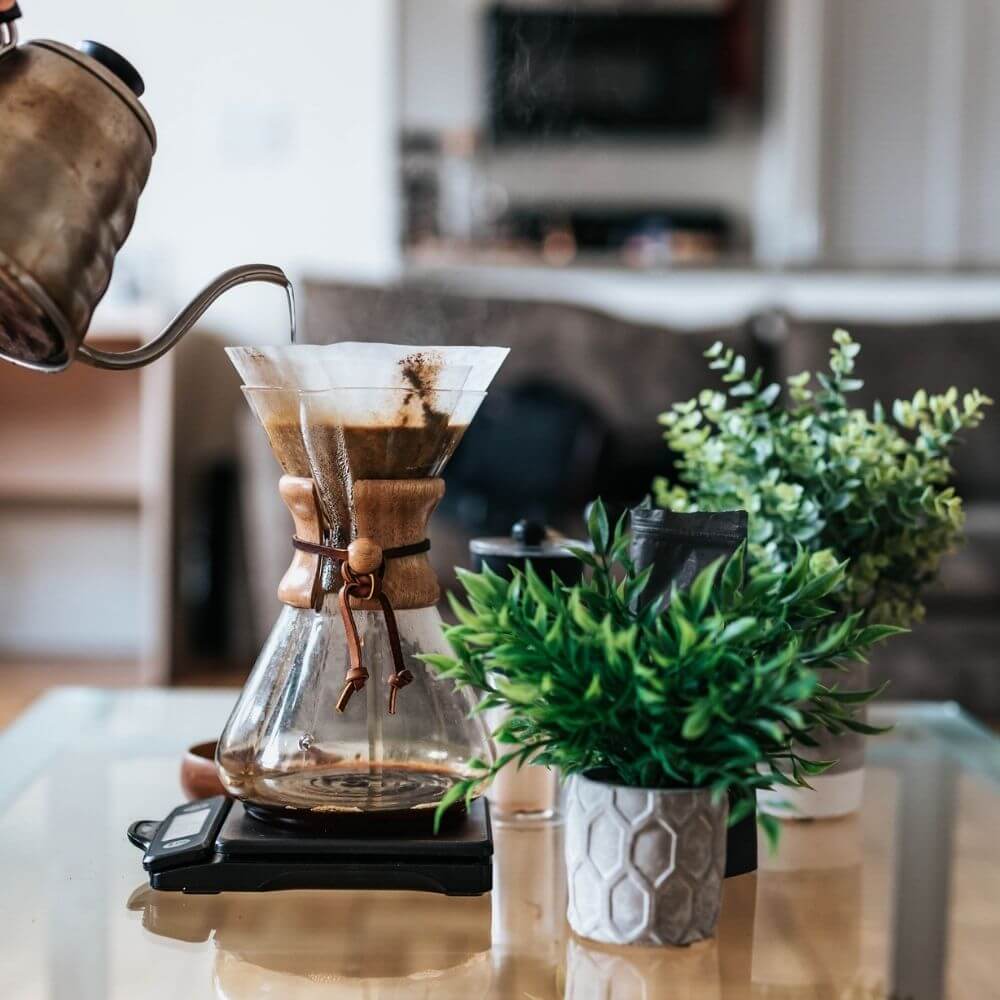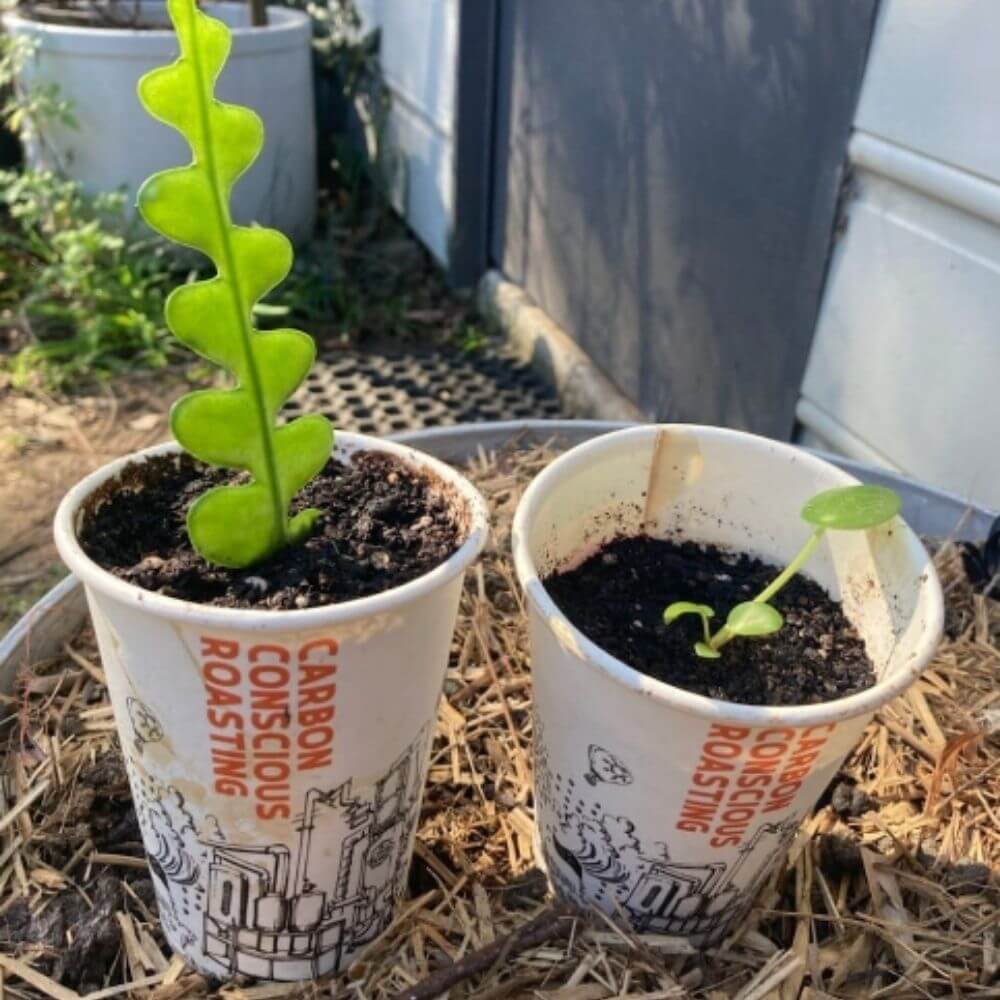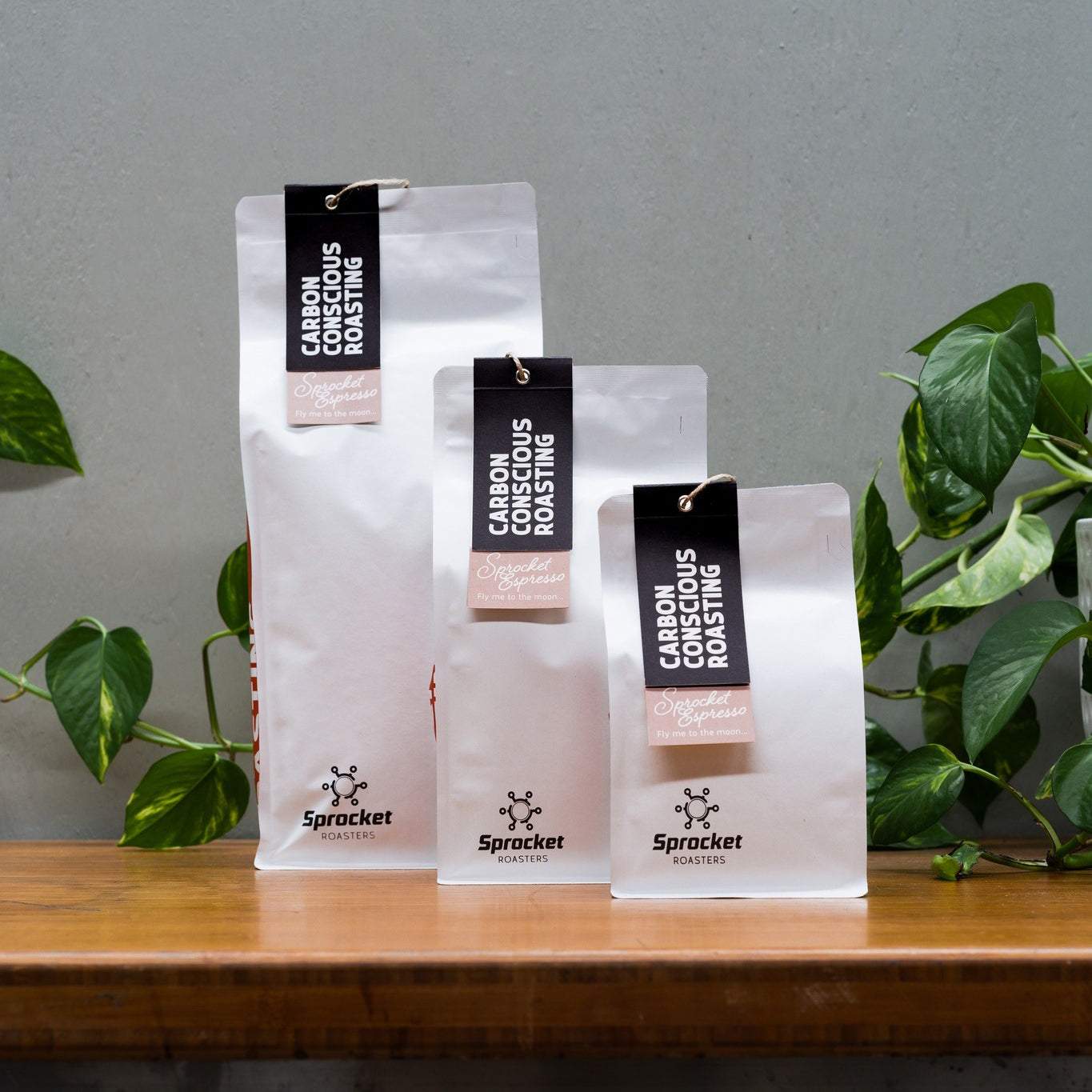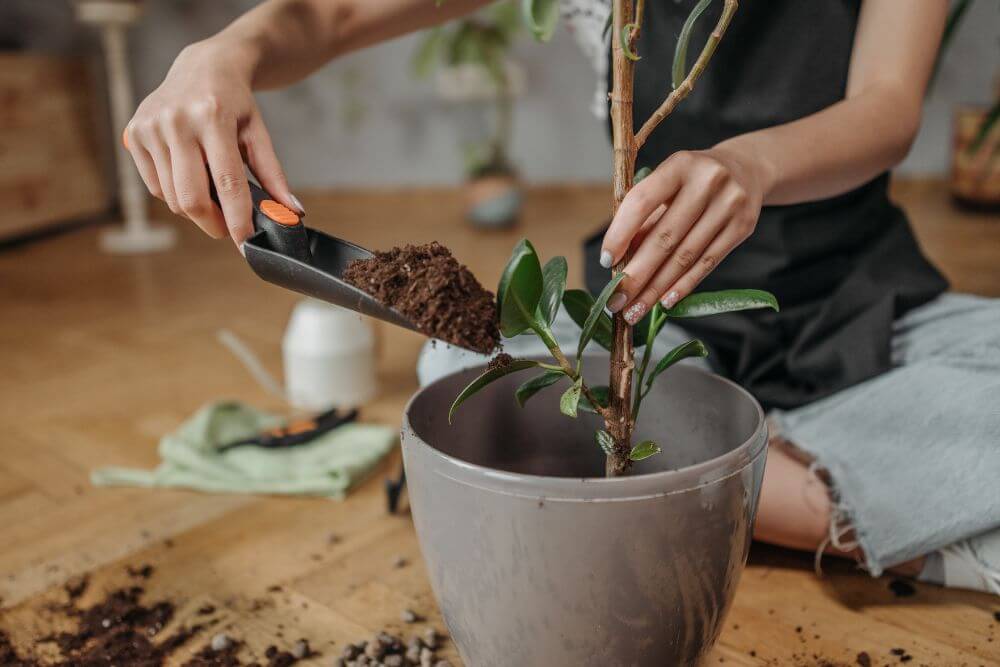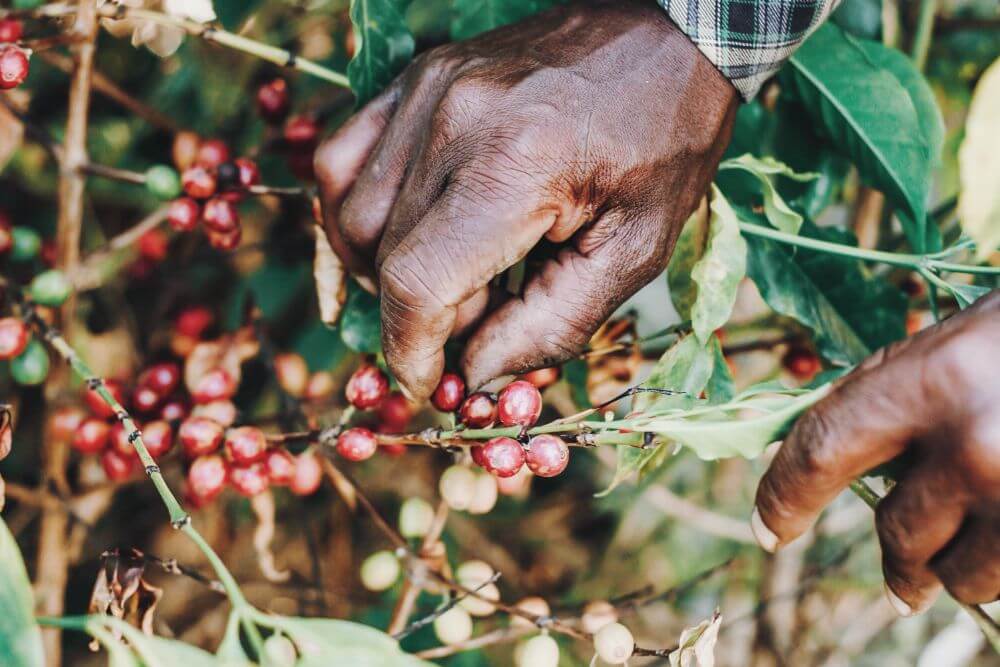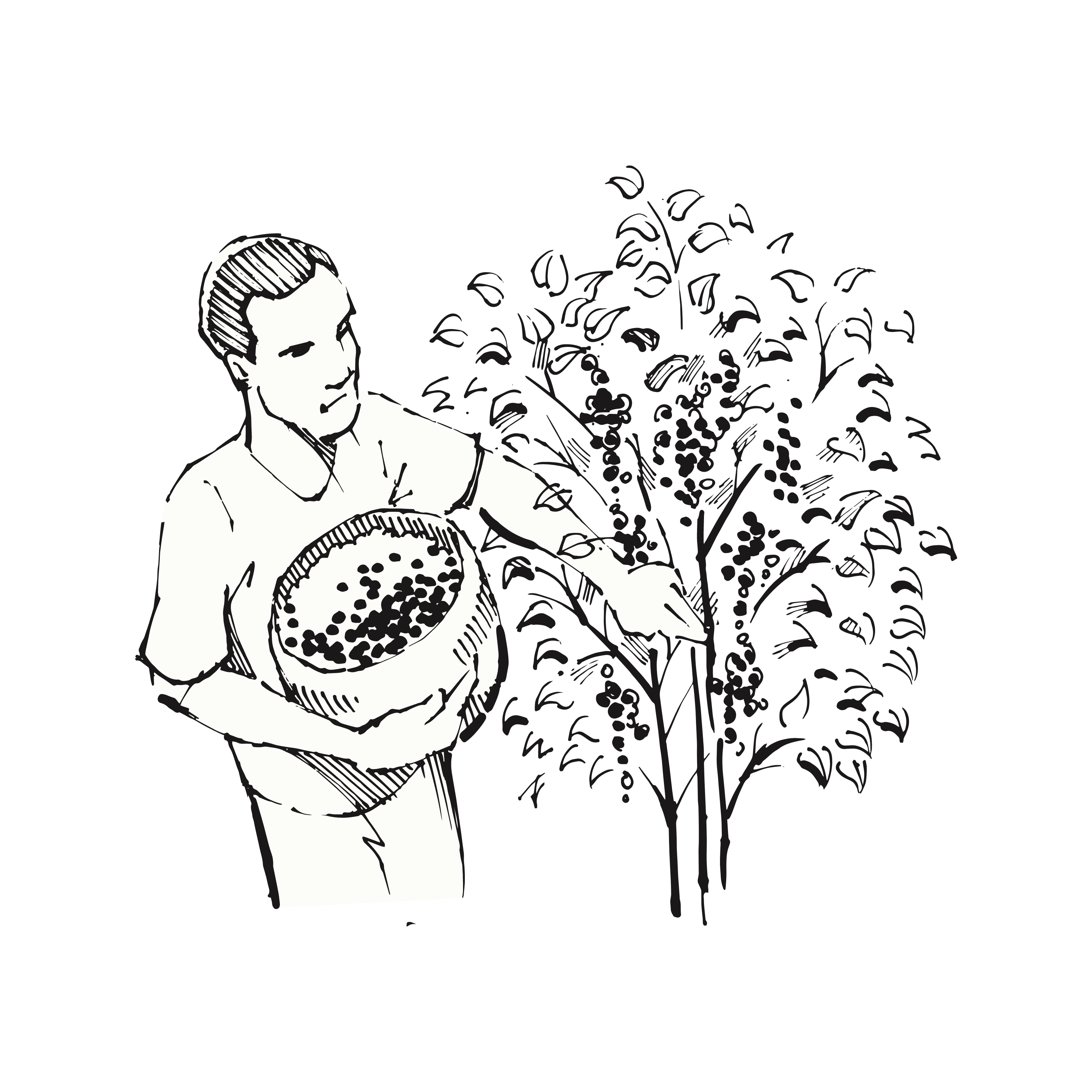Some green thumbs sing to their plants to get them to grow; others may give them endearing pet names; or even try to summon their inner chlorokinesis (the supernatural ability to physically or mentally manipulate natural vegetation). At Sprocket Roasters, however, we prefer to stick to the facts.
That’s why we use spent coffee grounds from our morning brew to help our plants thrive. Coffee grounds are a versatile and sustainable fertiliser rich in nitrogen and other nutrients useful for improving soil structure, deterring pests and improving plant growth. (That being said, incorporating the occasional backyard ballad into our gardening routine can’t hurt – Clapton’s “Let It Grow” perhaps? The Beatle’s “Octopus Garden?”)
While coffee grinds are good for your soil and your plants (we will go into a bit more detail about that shortly), this may not apply to seedlings, which are fragile and not yet ready for the nutrient shock that coffee grounds may deliver. It's important to use coffee grounds in moderation and mix them with other organic materials to avoid potential issues such as acidity imbalance or excessive nitrogen levels. Additionally, some plants may be more sensitive to coffee grounds, so it's advisable to research specific plant requirements before using coffee grounds as a fertiliser.
Besides the chlorokinesis thing, there is also one other myth you should disregard. Even though coffee grounds are mildly acidic, they do not unblock drains, as some people may believe. In reality, they will probably clog your drains. On the bright side, coffee grounds are good for your skin (which may be helpful if your green thumbs are destroyed following any extended gardening – or drain unblocking - sessions). Just mix the grounds with a little honey or coconut oil and rub on for some restorative, exfoliating action.
1.Compost
Coffee grounds are organic because they are the used ground beans (waste) that remain after the coffee-making process. Coffee beans themselves are not actually beans (they just look like beans), but the fruit or pip of cherries that grow on the Coffea plant. This, along with tea leaves, makes them a great addition to your compost pile because they help break down other organic matter and add micronutrients to the soil like calcium, magnesium, boron, copper, iron and zinc.
For those of us who like a bit more detail, compost is simply decayed organic material used as a fertiliser and conditioner of the soil. It introduces microorganisms that aid soil aggregation (which is how primary soil particles like sand and silt bind around organic matter). The microorganisms secrete microbial glues, which help bind the soil and can improve the drainage of your soil (not your drains)—hence the point about coffee grinds helping with soil structure.
How: Add coffee grounds to your compost pile in layers. Be sure to mix them with other organic matter, such as leaves, grass clippings, and food scraps.
2. Mulch
Coffee grounds also make good mulch (along with decaying leaves, bark and compost) that can be scattered around your plants to help control weeds, stabilise the soil and retain moisture. Mulch also provides good insulation for the plant, which can be useful in autumn and spring—both seasons are also the best time to spread mulch around your garden.
How: Sprinkle coffee grounds around plants as mulch. You can also mix them into the soil before planting.
3. Fertiliser
It's easy to get confused between fertiliser and compost. Fortunately, the difference isn't very complex.
Fertilisers (such as coffee grounds, manure and ground bone) deliver nutrients to the soil, while compost nourishes the soil. Fertilisers, however, need to be applied sparingly because they feed the plants directly as opposed to compost, which feeds the soil.
You will find that coffee grounds are enjoyed by acid-loving plants, bushes and shrubs like blueberries, cranberries, rhododendrons, hydrangeas and magnolia.
How: Add coffee grounds to the soil around plants. You can also mix them into compost tea.
4. Pest deterrent
Have you had your morning caffeine fix but are still feeling a bit … sluggish? Try scattering your coffee grinds around plants or mixing them into the soil to drive away slugs, snails and even ants.
Pests don't respond well to coffee grounds because they contain compounds like diterpenes and caffeine, which mask the scents that attract pests (coffee grounds have a strong aroma, but this is made even stronger in roasting). Fun fact: both compounds can also act as natural insecticides, as the United States Environmental Protection Agency noted.
How: Sprinkle coffee grounds around plants to deter pests. You can also mix them into the soil. Note: Be careful not to use grinds in any garden area where the family pet may inadvertently come into contact with and consume them; coffee can be toxic to some animals.
5. Worm bins
Peered into a worm bin recently? While not for the squeamish, we have yet to meet a gardener who doesn't love a good worm bin. You'll be pleased to know that worms love coffee, specifically coffee grounds and paper coffee filters, which their digestive systems break down into compost.
Overall, earthworms increase nutrient levels in the soil, improve drainage and are good for stabilising soil structure. Worms also distribute nutrients, decomposing matter, and micro-organisms throughout the soil.
Coffee grounds are good for your worms, and your worms are good for your garden. Take a spin around the humble worm bin, and your garden will reap the benefits!
How: Add coffee grounds to your worm bin in small amounts. Be sure to mix them with other organic matter, such as shredded paper and vegetable scraps.
6. Recipe for house plants
Using coffee grounds, you can make your fertiliser mixture for house plants. One recipe suggests adding the coffee grounds to a container, adding one teaspoon of cinnamon, diluting with club soda, and applying once every few weeks. You may substitute the club soda with sparkling water, tonic water or carbonated soda. Singing to your plants for that extra special touch is optional.
7. Compost tea instructions
Ensure the coffee grounds in the garden are fresh because they will begin to lose their nutrients after a few days. Also, make a point of diluting the grounds in water - like a weak coffee tea - to help reduce some of the impact of adding too much acidity to the soil. Compost tea is made by adding coffee grounds to a bucket of water and leaving it to steep for a few days; you will find that compost tea is good for your lawns, too.
8. The environmentalist’s way
Recycling your coffee grounds in your garden should be an environmentalist's first choice because it keeps organic matter out of landfills, thereby reducing your contribution to greenhouse gas and contributing to the circular economy.
This is where Sprocket Roasters coffee comes into its own. If you are a coffee enthusiast who cares about the environment and wants to ensure we leave the earth as healthy and vibrant as possible, consider Sprocket’s coffee.
The reason is simple. Sprocket Roasters have developed the most environmentally innovative coffee roasting process in Australia. By purchasing from us, you’re getting high-quality beans and a coffee product that has been roasted sustainably. Fist pump for both your morning brew and Mother Earth!
Our innovative fluid bed technology contributes to the circular economy by using coffee grounds and other bioenergy for fuel (not fossil fuels); this keeps additional organic materials out of landfills. Even the coffee husks are used as fuel; emissions are negligible due to complete combustion of the biomass. Another bonus? A high degree of control and accuracy is inbuilt into Sprocket’s roasting process, ensuring you can count on the same consistent cupful of flavour every single time.
Try a bag of Sprocket’s coffee; after you’ve enjoyed your morning brew, you can take your spent grinds (and compostable bag) out to the garden or worm farm. You’ll also contribute to the circular economy by utilising this nutrient-rich by-product on your plants. After all, as Paul Kelly has sung (possibly to his plants), “From Little Things Big Things Grow.”

